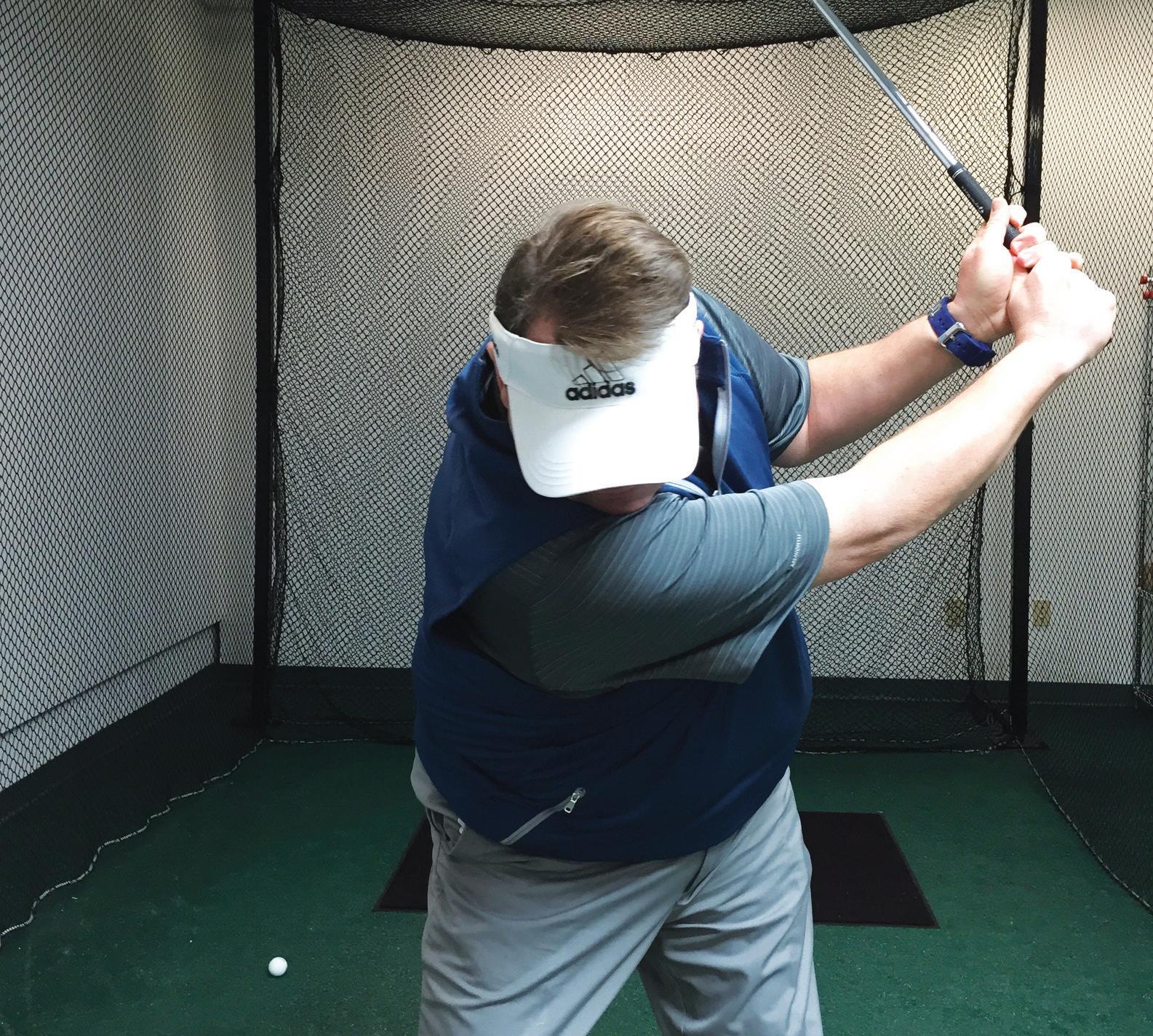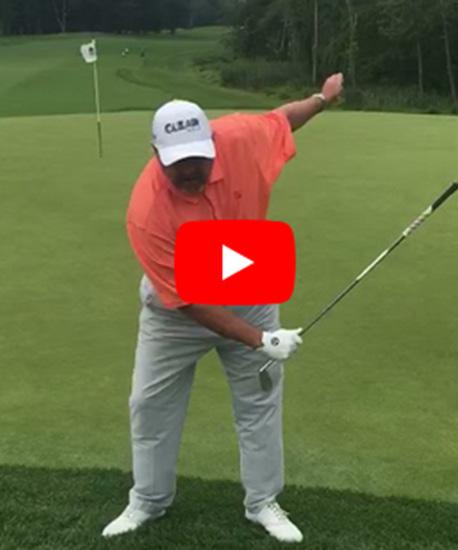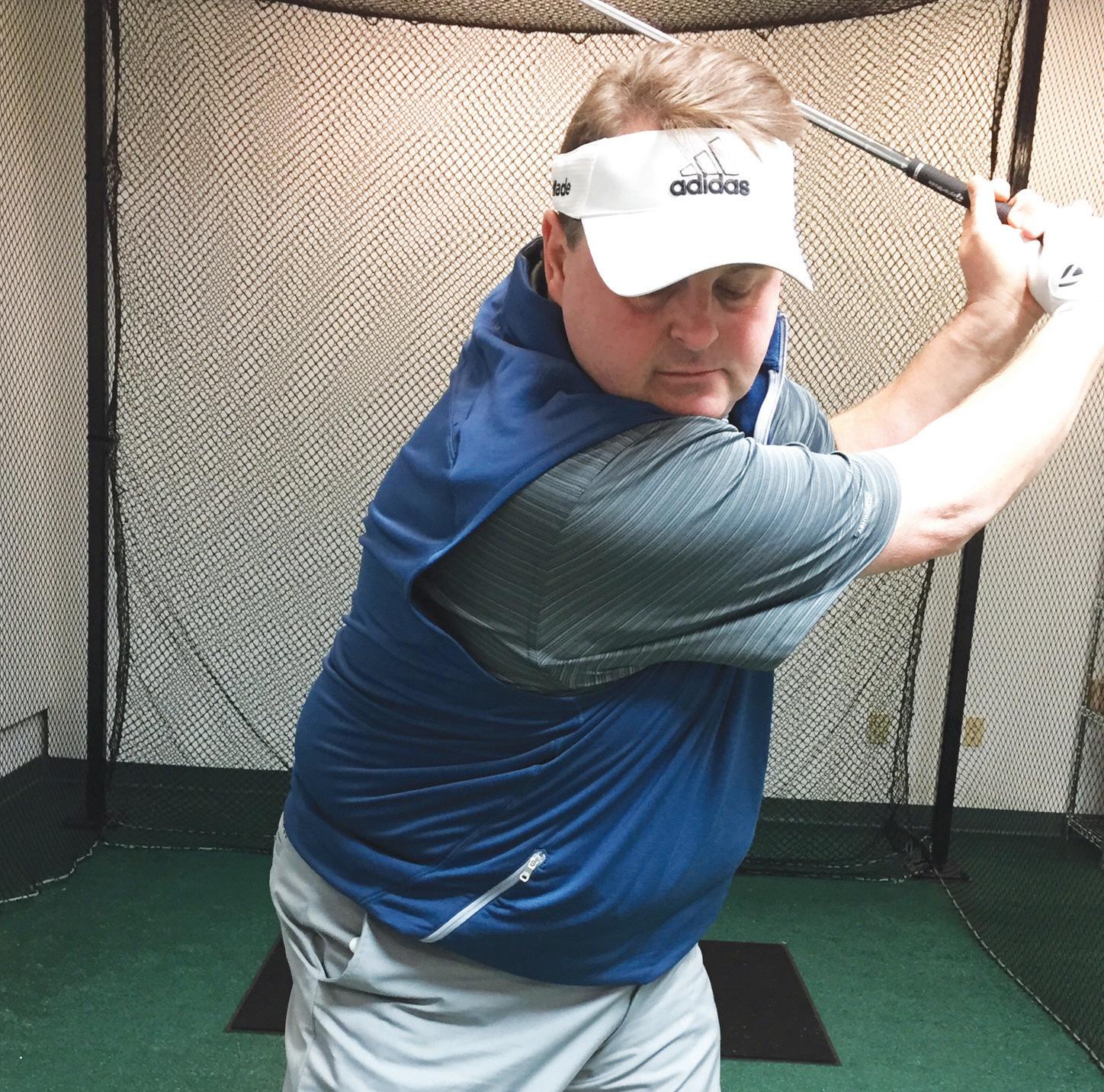
1 minute read
What’s Your Angle?
By Gene Mulak
The talented ball striker of the 1980’s Mac O’Grady was asked to name the biggest difference between a low and high handicappers golf swing. His response was the following, “the degree of freedom that the lead shoulder moves downward and inward”.
There is a consistent metric among better players. At the top of the swing, their shoulders are on a 35 to 40 degree angle. As the handicaps go up, this angle is much less. When a golfer addresses the ball, they are bent forward to grip the club which is built on a tilted angle. In a good golf swing, the golfer will move their lead shoulder on a trajectory that will move downward and inward. This allows for a number of important pieces to fall into place.
It will help in stabilizing your body and create a more center pivot swing, thus creating a more consistent low point on the ground and in turn promote cleaner strikes.
Moving the shoulder downward will keep your head in place. This retains your central vision on the ball. A level shoulder turn will move the head off the ball and in effect it is creating a motion that is similar to hitting a moving ball which can be arduous.
The lead shoulder moving downward and inward allows for the angle of ascent of the hands in the backswing to make an arc back up and in, creating a circular motion.
Try this with a buddy or simply in front of a mirror - Wearing a hat or visor, make a back swing and stop at the top. If you can see your face, your shoulder turn is too flat and need to steepen out. Start noticing the players on TV, from straight on their face is generally not visible because of the lead shoulder moving downward and inward.

Click Here to Watch Video
Downward and Inward
Shoulder Moves Downward in a Proper Golf Swing

Level Shoulder Turn
Gene Mulak is the Director of Golf at Silver Spring Country Club in Ridgefield, CT . Gene is a certified Stack & Tilt instructor. He can be reached at (774) 4061549 or Golf@SilverSpringCountryCC.org










